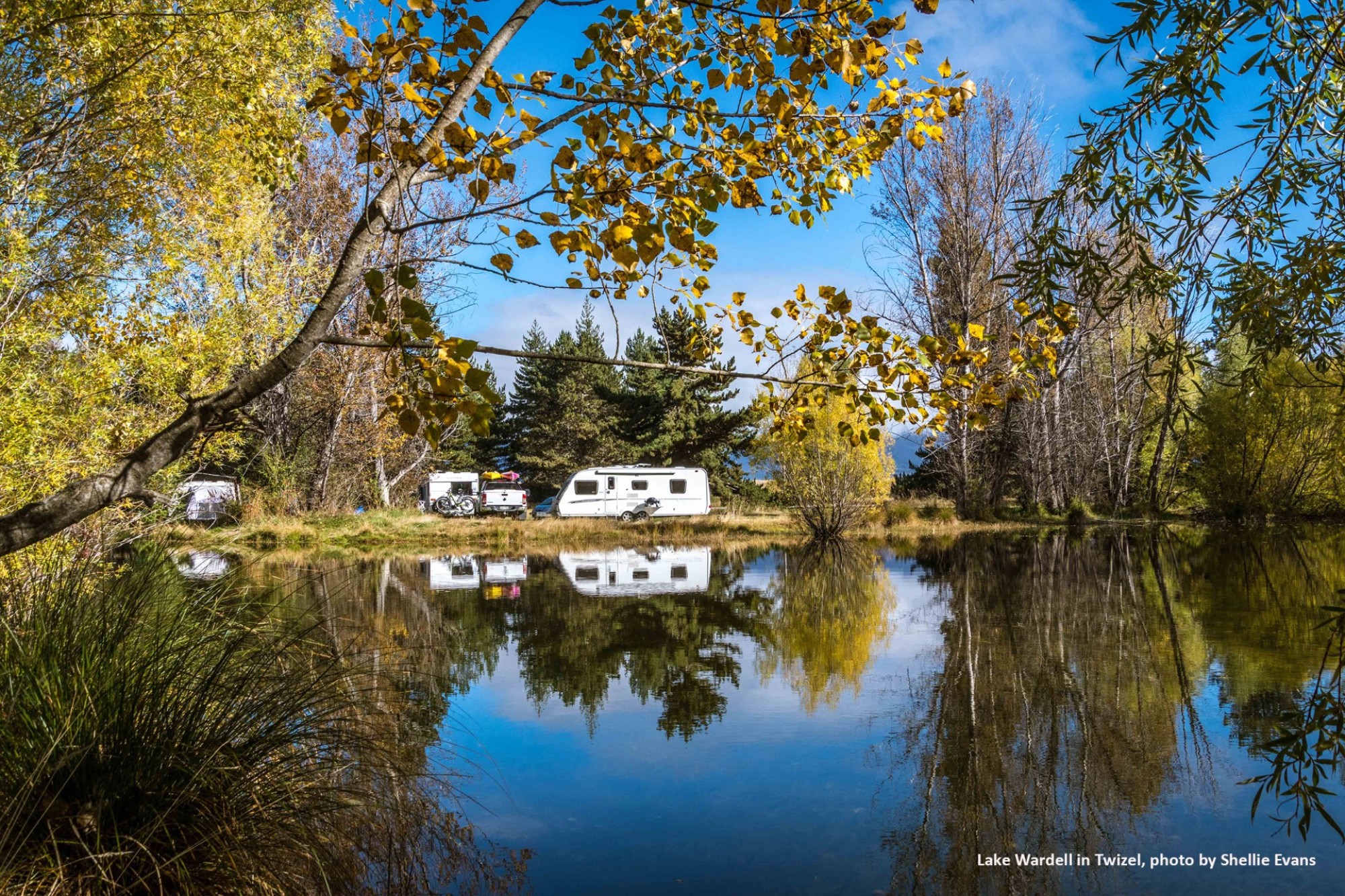The road ahead is finally clear for the NZMCA’s new self-containment system
Our volunteer Vehicle Inspectors will cease inspecting vehicles under NZS 5465:2001 (blue warrant cards) on 30 September and begin inspecting members’ and commercial partner vehicles under the new regulations from 1 October. The National Office will begin issuing green and yellow warrant cards to vehicles certified under the new system from 8 October.
Getting to this stage has been hard-won however; the battle to protect our members’ right to freedom camp has taken untold hours of planning and research by the National Office team – with valuable input from experienced volunteer SC Officers; thousands of words in formal submissions to the highest level; many, many meetings in Wellington; and the frustration of lengthy delays caused by a last-minute ‘hiccup’ with the regulations.
The NZMCA’s National Manager Property and Policy, James Imlach, explains the search for an improved self-containment system began some years ago when councils and communities took their concerns regarding the poor behaviour of some freedom campers and increased pressure on public infrastructure to the government.
“As a result, in early 2021 the government began exploring alternative solutions to address these problems, including legislative reform,” says James.
While the NZMCA was confident of the credibility of its own long-running Certified Self-Containment scheme and the behaviour of the vast majority of the membership, James says ‘unfortunately, we’d all witnessed, some people undermining NZS 5465:2001 and damaging the public’s confidence in the Standard’.
“The government believed raising the bar on self-containment and introducing new regulations would help regain the public’s trust and freedom camping’s social licence.
“However, there was also a groundswell of support from councils and communities nationwide to overhaul the law - meaning all New Zealanders would only be able to freedom camp at selected designated sites.”
Worried what such a prohibitive regime would mean for the future of camping in New Zealand, the NZMCA decided – somewhat reluctantly, given the impact it would have on about 10 per cent of the membership who didn’t have fixed toilets in their vehicles - it was best to support the government’s preference to raise the bar on self-containment than ultimately accept freedom camping’s death sentence.
After a lengthy process of consultation, last year Parliament introduced new legislation, and the government adopted new regulations that, amongst other things, require all vehicles used for freedom camping purposes to have permanently fixed toilets onboard.
What does this mean for NZMCA members?
- If you want to remain a member of the NZMCA and freedom camp, your certified self-contained vehicle will require a fixed toilet onboard and a green warrant card (including a $120 levy - due four-yearly - to help the Plumbers, Gasfitters and Drainlayers Board recover the costs of administering the new self-containment system.
- If you want to remain a member of the NZMCA but don’t have a fixed toilet onboard or you don’t freedom camp, your certified self-contained vehicle will require a yellow warrant card issued by the NZMCA once your blue warrant card is about to expire.
- Members are advised to visit the NZMCA website for further information on the three warrant card options – green, yellow and blue – including their costs and limitations.
What’s next for the NZMCA?
Soon to become the largest certification authority approved by the Plumbers, Gasfitters, and Drainlayers Board, the NZMCA is well prepared for the new system.
Over the past two months, hundreds of volunteers and commercial partners’ staff have undergone training to become vehicle inspectors under the new regulations.
The National Office team has also been busy updating our IT systems and internal processes to ensure we can operate under the new laws and regulations. The NZMCA Board thanks our volunteers, members, staff, and commercial partners for their support during this transition which means that:
- From 1 October 2024, members’ vehicles and those owned by our commercial partners will be inspected under the new self-containment regulations.
- From 8 October 2024, the National Office will deploy its new IT system and begin processing vehicle inspection forms issuing either green warrant cards, or yellow warrant cards (to members only).
Members will receive further communication and information from the National Office, depending on which colour warrant card they select at the time of inspection.
It will take time for us all to adapt to these changes over the next few months, but we are well prepared to tackle any speed bumps along the way and have the resources in place to support each other during the transition.
We’re on this journey together
“Finally, on behalf of the National Office team I’d like to thank you, our members, in advance for your patience as we have worked our way through this lengthy, and sometimes frustrating, process,” says James.
“We are on this journey together, so please take on board the recent comments from our CEO Bruce Lochore, who asked us all to ‘show a bit of gratitude’ to our 550 volunteer vehicle inspectors who will soon embark on the tough task of inspecting big numbers of members’ vehicles in a relatively short time.
As Bruce said: “Given this challenging situation I’d like to urge all members having their vehicles inspected to respect and appreciate the time and effort the vehicle inspectors are providing.
“At the very least you should be courteous, helpful and grateful for the service they offer and I’d even go a step further and say why not offer them a shout or put your hand in your pocket and show your appreciation in a tangible way?
“That’s by no means expected, it’s entirely up to you; but I reckon it’s one small way we can all thank and encourage these hard-working volunteers who give their time and talent to inspect your vehicles at no cost to you.”



